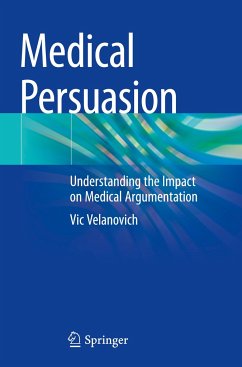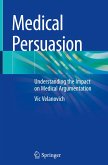This unique book is a major contribution to the literature on persuasion in communication, and on doctor-patient communication, in particular. Written by a physician-scientist with deep experience on the topic, the book offers a comprehensive analysis of what makes an argument in medicine persuasive, outlining the characteristics of an argument that causes people to accept that the conclusion(s) of an argument are true. Although the book focuses on medical arguments in particular, the general approach offered by the author is appropriate for any informal argument. The central emphasis is that although sound logical construction and true premises are required to establish the logical truth of a conclusion, this is insufficient for persuasion to occur. Although formal logic can exist independent of human reception, real-world arguments must have both an arguer (the individual constructing the argument) and an audience (individuals listening and evaluating the argument).Whether the audience is capable of changing their world view is as important as the logical construction of the argument, maintains the author. To illustrate all points, a plethora of examples in medical research and in diagnosis and treatment decisions are presented. Medical Persuasion: Understanding the Impact on Medical Argumentation is a unique contribution to the clinical literature and will be of immense interest to medical practitioners, researchers, and philosophers as a way of gaining insights into constructing arguments for their peers and patients. In addition, medical trainees will gain important insights in the production of medical knowledge and medical practices, and even students in the social sciences and humanities will find the work valuable as a conduit to gaining insight into the reception of an argument.
Hinweis: Dieser Artikel kann nur an eine deutsche Lieferadresse ausgeliefert werden.
Hinweis: Dieser Artikel kann nur an eine deutsche Lieferadresse ausgeliefert werden.








